As a child, I was fortunate in that I was often surrounded by literate people. In a couple schools I attended, it was not unusual to see classmates reading recreationally when given a chance. Sometimes I met other boys who had comic books of their own. I can’t remember any illiterate friends. Plus, both biological parents, and all my siblings, were readers.
When I stayed with my father, he usually had a paperback laying near the ash tray. I’m sure he read plenty of other books (because he sometimes discussed them with others), but I only remember seeing two “brands” of fiction he read. One was the latest Executioner novel, and the other would be the latest Louis L’Amour western. The former, I now believe, were his “guilty pleasures,” while the latter were his favorites.

By eight or nine years old, I was already publishing my own crude comic books on typewriter paper, drawn with whatever pencil was left laying around somewhere I could find it. Whenever my father acknowledged my obsession with comic book superheroes, however, he would typically bring up Louis L’Amour as the sort of creator I should aspire to be—if I should, in fact, aspire to any creative pursuits.
He and other adults would sometimes speak of Zane Gray or Max Brand. But none could hold a candle to L’Amour, by his reckoning. The closest I ever heard to a reason for his lofty evaluation was that L’Amour, as part of his research, visited the locales wherein he set his novels. There wasn’t so much as a tree, a cactus, or a rock L’Amour mentioned in his fiction that he didn’t personally see or touch on his journeys, according to my father. Being a very literal child, I initially took that to mean that my father’s standard of excellence was linked to an author’s familiarity with the setting of his story. But now, looking back, I’m convinced that authenticity in general was what my father esteemed.
My father grew up on a ranch, and knew the cowboy life. He had seen plenty movies and read plenty books written by authors who didn’t know the lifestyle, the lore, or the tradecraft. By his metrics, Louis L’Amour was the gold standard of authenticity.
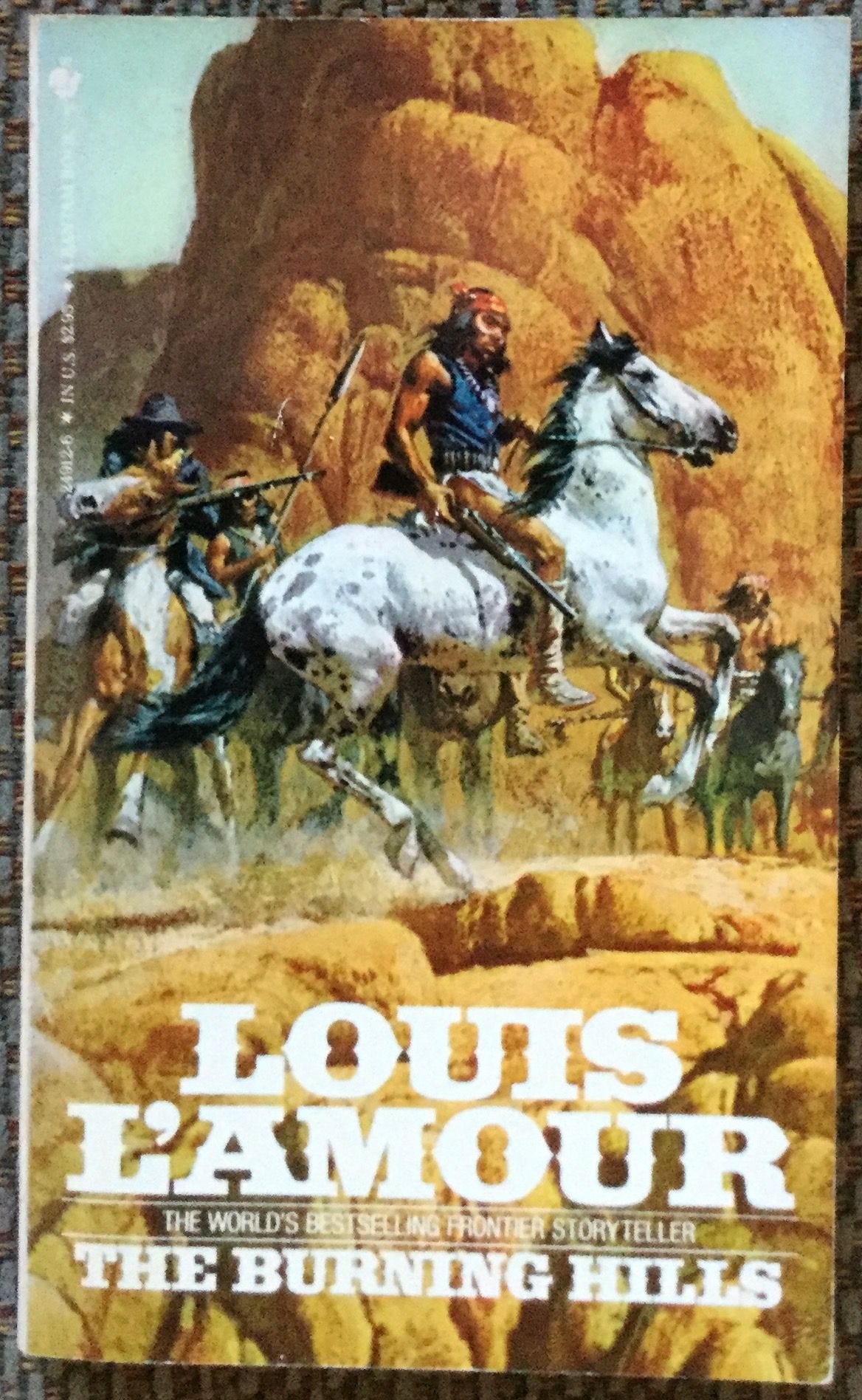
L.L. knew his stuff.
I’ve never met a bigger L’Amour fan than my father; but my brothers and one sister read him, too. I didn’t appreciate westerns as a genre much as a youngster, but I did read a couple Lone Ranger and Red Ryder novels. I once discovered the Easy Company Series somehow. A brother once noticed me reading The Twilight Sniper, and informed me I should try reading “real” westerns—like the work of Louis L’Amour. I did borrow his copy of The First Fast-Draw afterwards. I read it and thought it was good, but the western bug didn’t bite me until many years later, as an adult, after watching John Ford’s The Searchers (probably my favorite western movie of all time). After that, I began reading westerns by Max Brand (Fredrick Faust?), Zane Gray, Gilbert Morris…and Louis L’Amour.

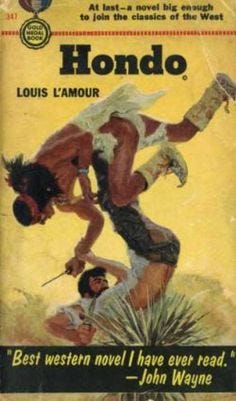
L’Amour is probably the most prolific author I’m familiar with, and the most successful “genre author.” He is now gone, but has hundreds of books still in print. I wouldn’t be surprised if every single book he ever wrote is still in print. He’s one of those talented and hard-working writers from the pulp era who would never, ever be given a chance by Current Year traditional publishing. But because he broke in before the cultural Marxists took over the industry and installed their Thought Police (and Race/Gender Police, I should add) as gatekeepers, tradpub is happy to keep their diseased, creatively challenged operation afloat by raking in money from selling the work of L’Amour and other “toxic heteronormative white men.”
Thinking of L’Amour as just a western author is myopic. The man did a lot more in life than just punch cattle, just as the author wrote in a lot more than just the western genre. He was versatile, but for whatever reason, found the most success writing about cowboys and gunfighters. So he stuck to what brought him the most success. However, that is not to say his motivations were purely mercenary. He had plenty of passion for the genre of his bread and butter. He obviously appreciated the culture and lore of the west during the frontier days.
“But but but his work is formulaic!”
Admittedly, a lot of it is. But that doesn’t mean he was “phoning it in.”
Those who know me personally consider me something of a snob when it comes to entertainment. Since I was a pre-teen, I could often predict where a plot was going, after watching the first act of a movie. I tend to sneer at formulaic writing.
Honestly, though, only a finite variety of stories exist in any medium. It could be argued that all entertainment follows some sort of formula. So it’s really the most blatantly formulaic work, written from a formula (rather than something written from the imagination, which just happens to align with an existing formula) that gets a withering sneer from me. In fact, certain formulas appeal to us—even snobs like myself. L’Amour simply settled on a formula which held widespread appeal.
L’Amour wrote aspirational heroes with solid morals who followed the Golden Rule. They were quick on the draw, dangerous in hand-to-hand combat, superb horsemen, wise and quick-thinking tacticians, expert survivalists, yet modest, self-sacrificial, honest, and fair. That worked well enough in the Pollyanna postwar America, but you would think his fiction would have fallen out of favor during the ascendancy of the counterculture during the ‘60s and ‘70s, when Hollywood and the New York Publishing Cartel (NYPC) focused on the tragic hero, the Byronic hero, the everyman hero, the antihero, and the sympathetic villain. Yet L’Amour’s fiction only grew more popular.
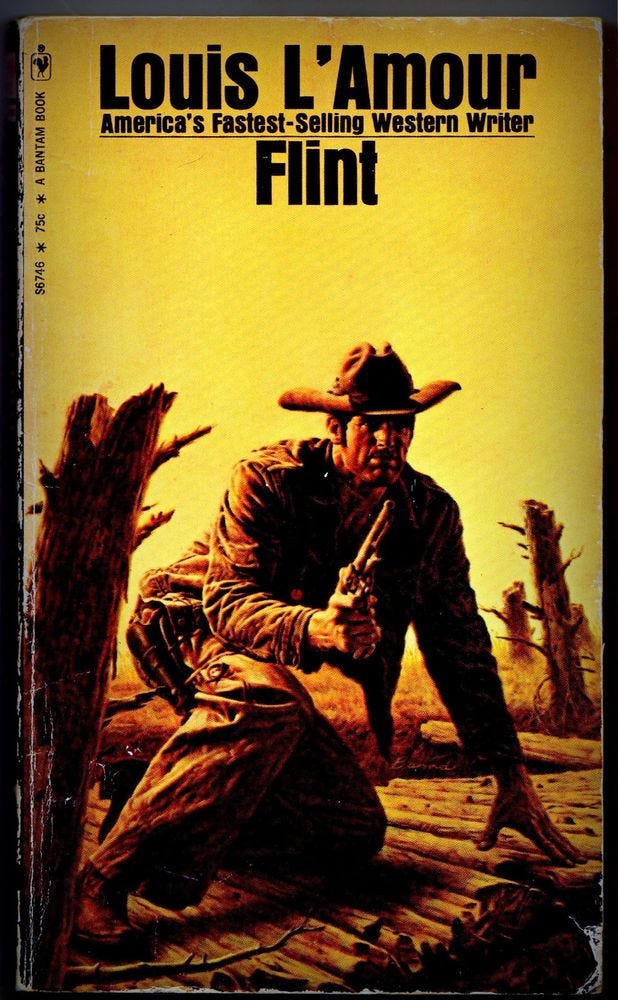
The contrast of L’Amour’s stories with cynical and sometimes downright depressing pop culture during the same period is one piece of evidence corroborating the existence of the “silent majority” or “moral majority” during that period. L’Amour’s westerns were likely a breath of fresh air to Americans observing the “sexual revolution,” the mainstreaming of recreational drugs, plus the open denigration of America, the middle class, the nuclear family, and even God.
L’Amour and his protagonists were solid, dependable, and trustworthy. They were courageous men of action, with surpassing integrity, who stood strong against whatever odds they faced. Sometimes they faced the odds alone, sometimes shoulder-to-shoulder with other resolute men, just as L’Amour and his contemporaries had through years of Depression and World War.
Even in our present illiterate, pozzed age of corrupt institutions, fake news, participation trophies, plummeting IQ and contempt for natural masculinity, L’Amour remains surprisingly popular. He stood strong in the onslaught of the counterculture. Now you could argue his fiction represents the new counterculture: strong, decisive men willing to do what’s right, even at great risk to themselves, so that their family, community, and country can enjoy freedom and prosperity bought by their own sacrifice. Boys and young men need that ideal to aspire to. Through the literary work of L’Amour and others, some are, thankfully, discovering it. I dare say some are inspired by it.





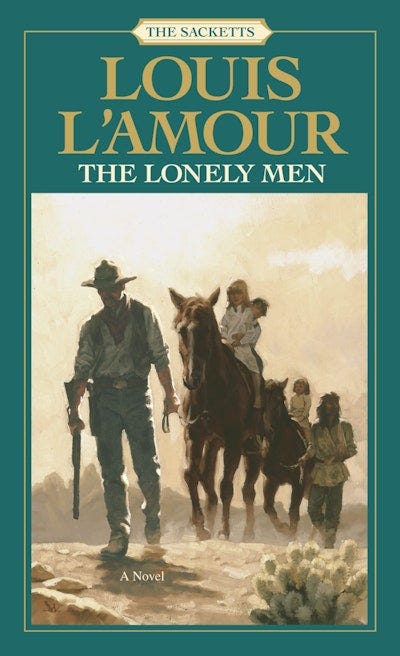
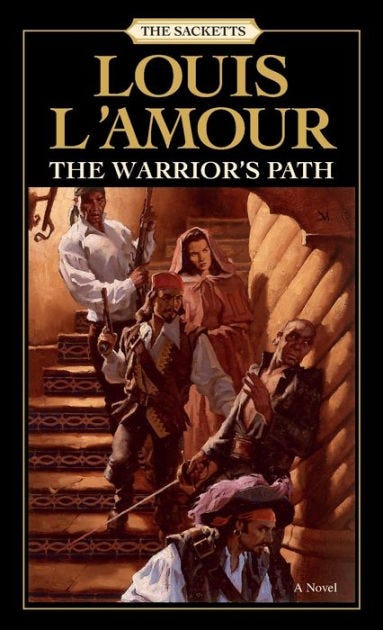

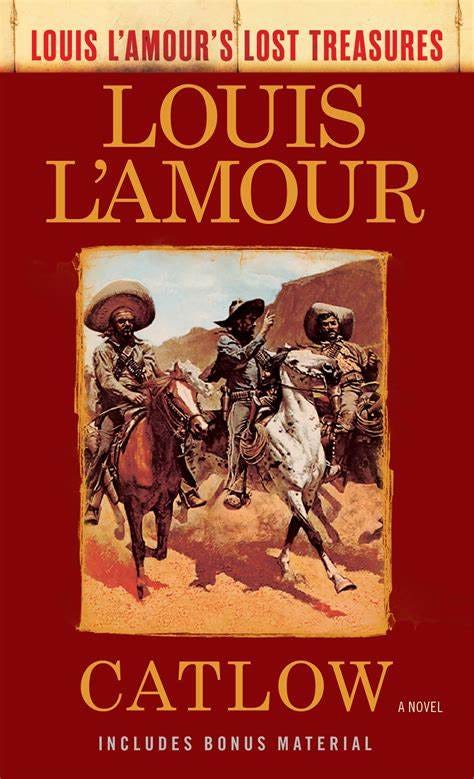
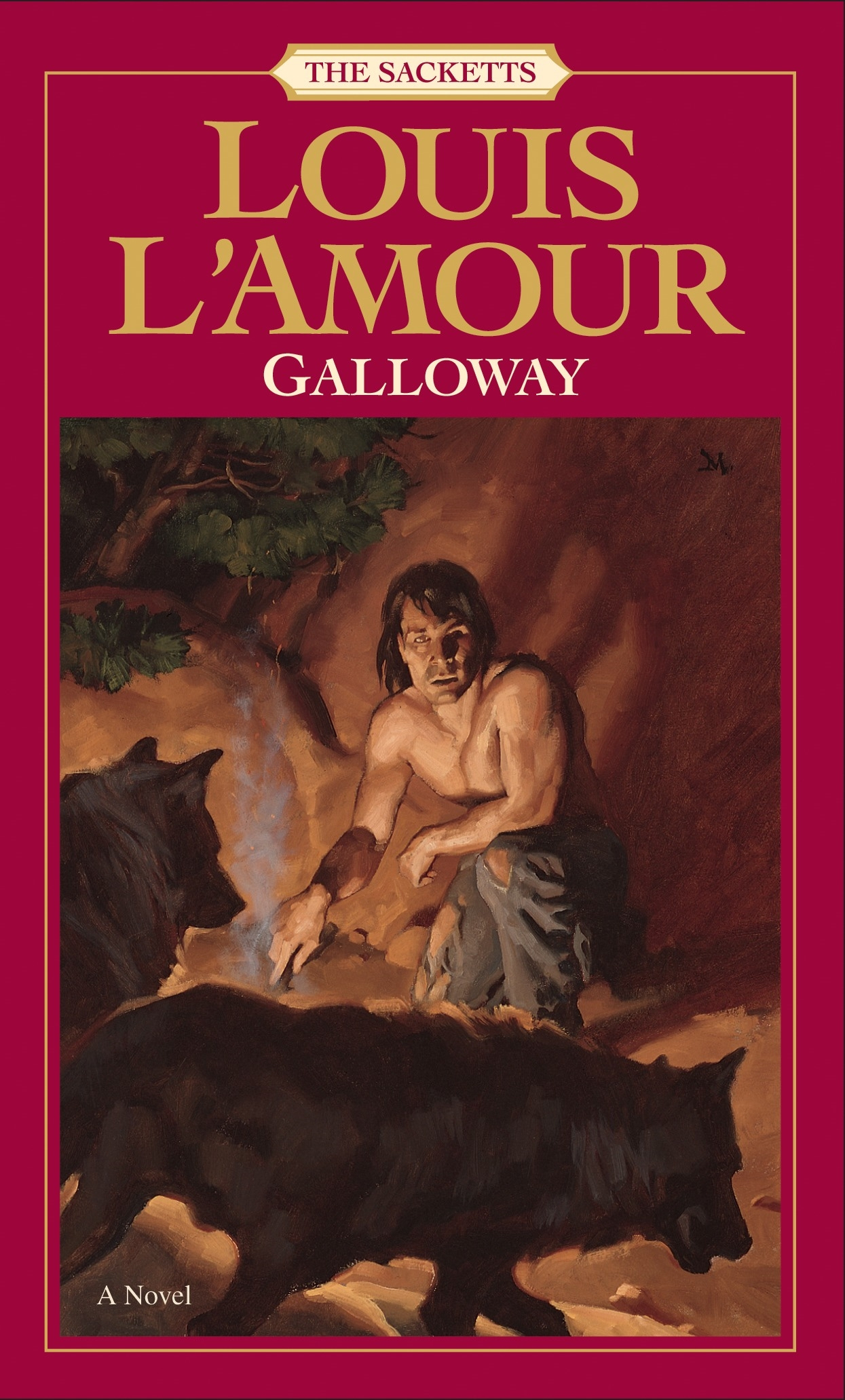
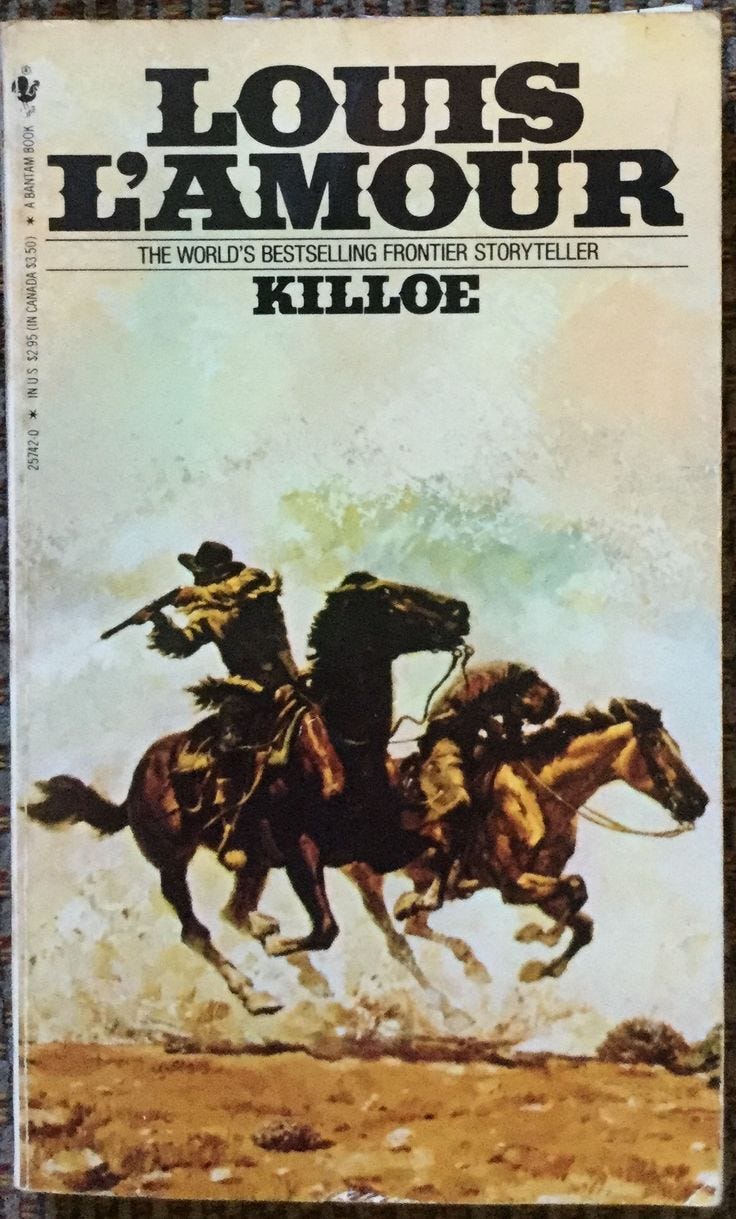
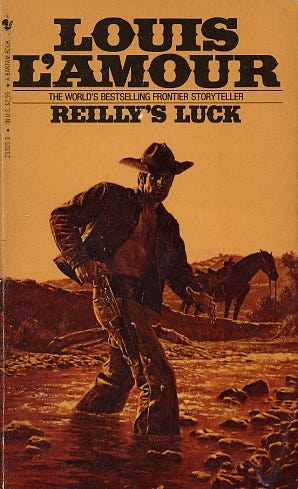
I have been a fan of Louis L'Amour since I was at least 12 years old. While other girls I knew were reading romance stories and pining away after Backstreet Boys, Mark-Paul Gosselaar, and Luke Perry, I was reading "Killoe", "Man from Skiberdeen", "Kilkenny", and of course "the Sacketts." My heroes were men of action, hard men who worked hard and fought hard and pinned everything on their word and their honor. As a young girl, Louis L'Amour shaped my idea of manhood and what a good man looks like and what kind of man I wanted to find, but not only that, it inspired me to learn to be the kind of woman that such a man would need and want. I wanted to live up to that breed of man.
For my own writing, the highest praise I could ever get is to be told my writing sounds like Louis L'Amour!
I've read a few of L'Amour's Westerns and they're all good. I think Conagher is my favorite book, and Hondo might be my favorite movie while The Sacketts was an excellent mini-series. L'Amour's protagonists definitely were tough men with morals, which is definitely lacking now. It's also hard to say that any genre appeals to masculinity quite like the Western. Great post, Henry.